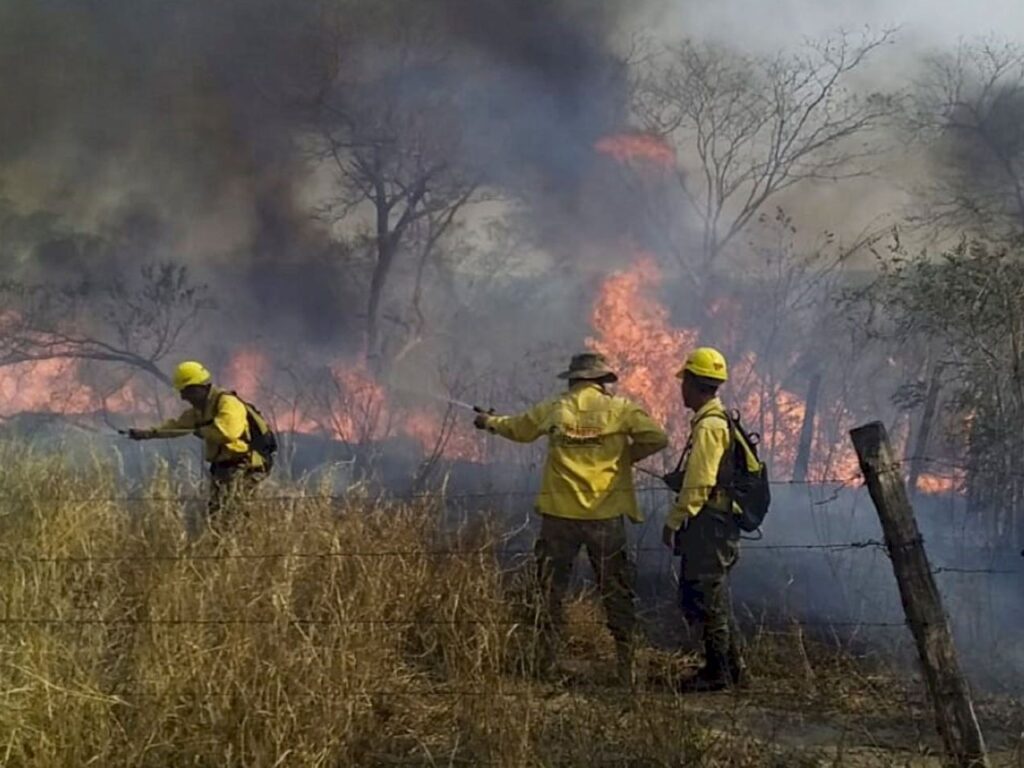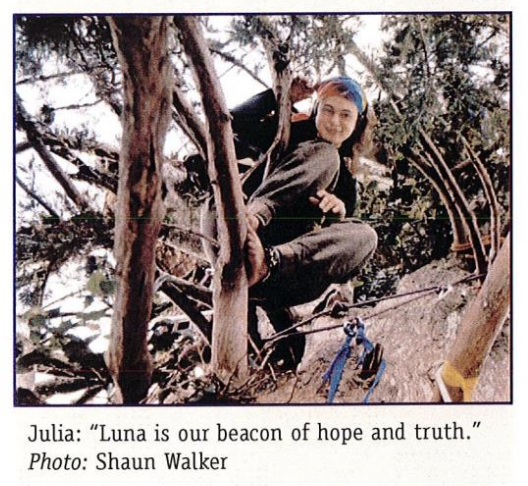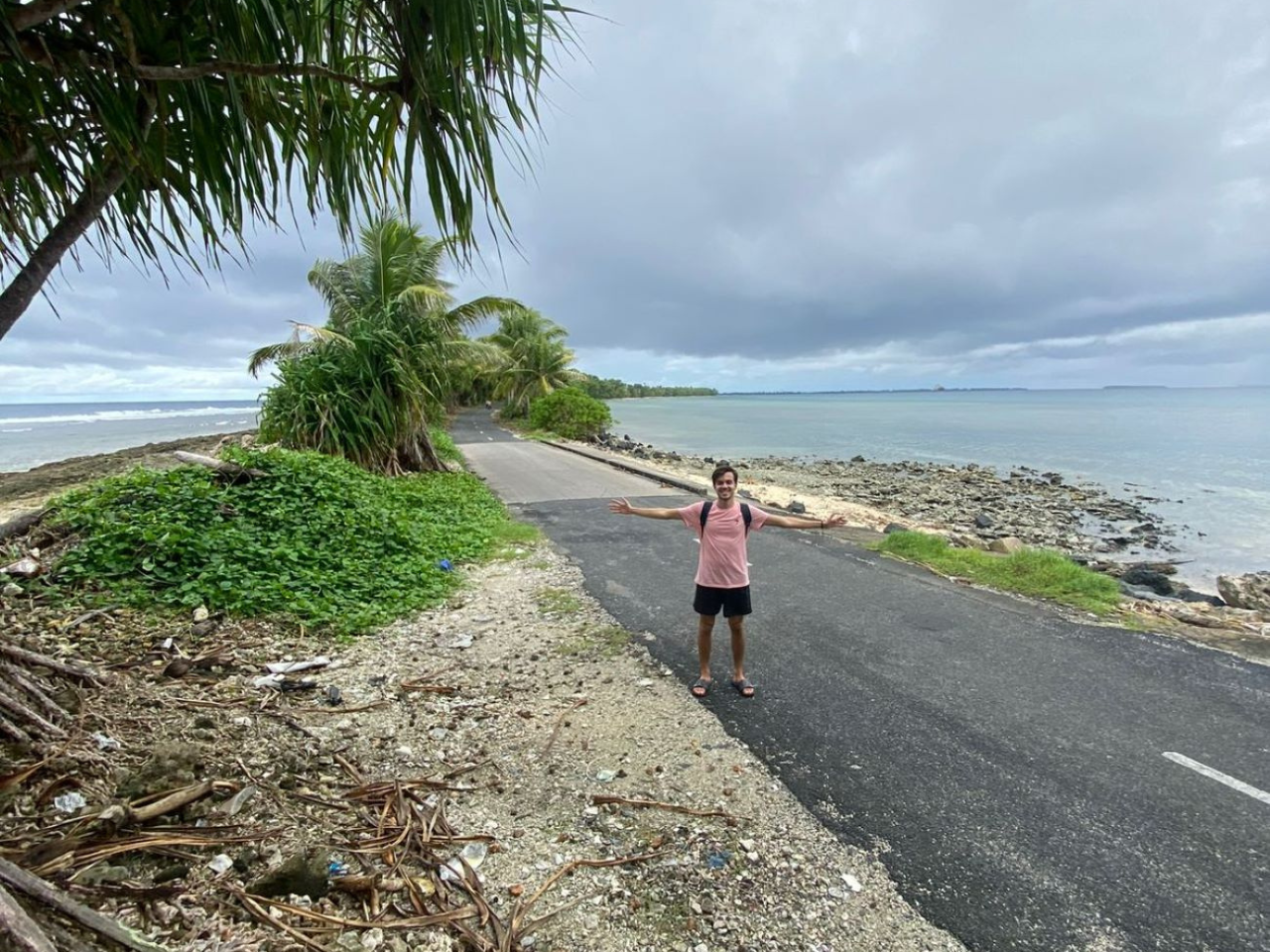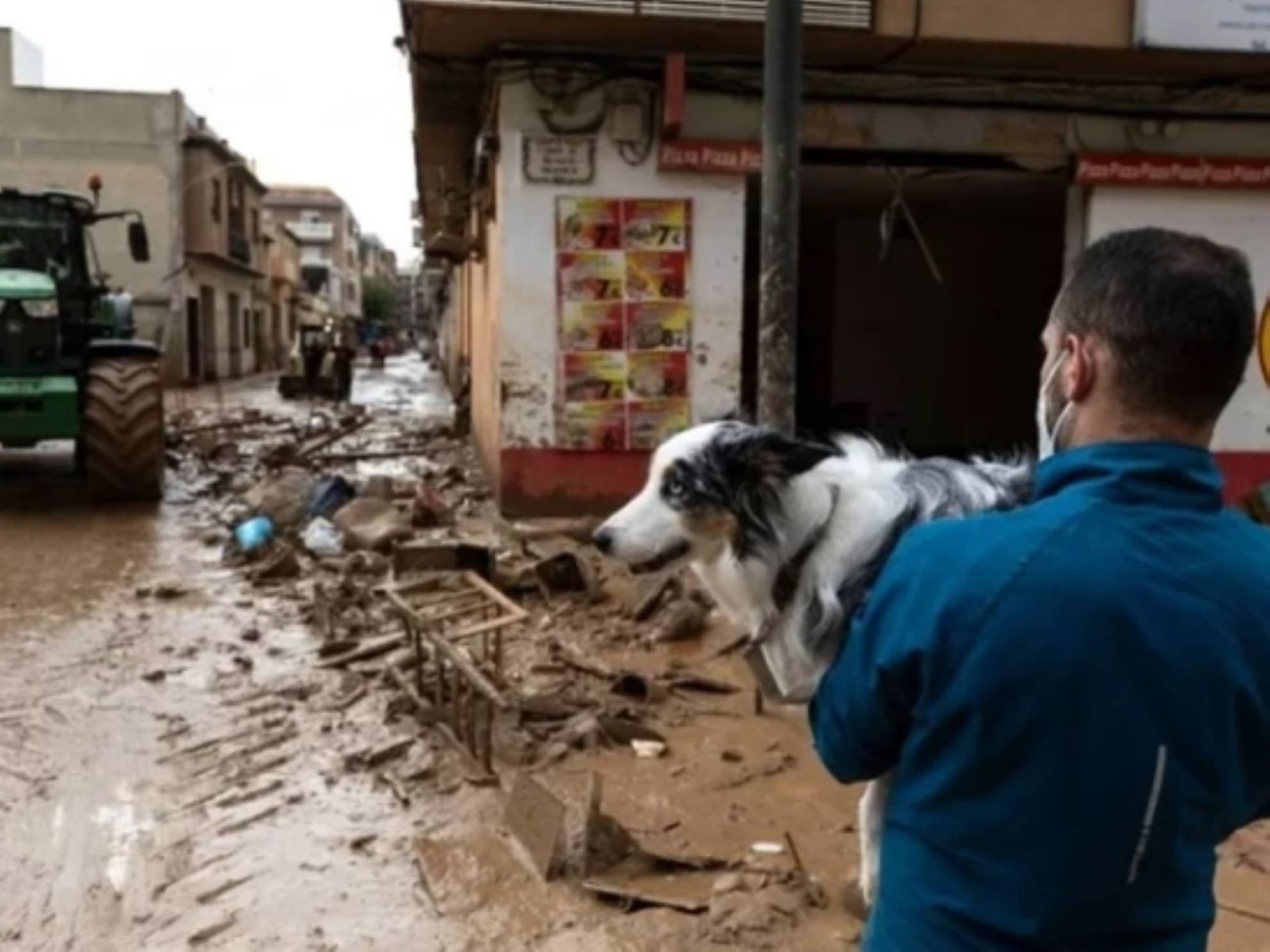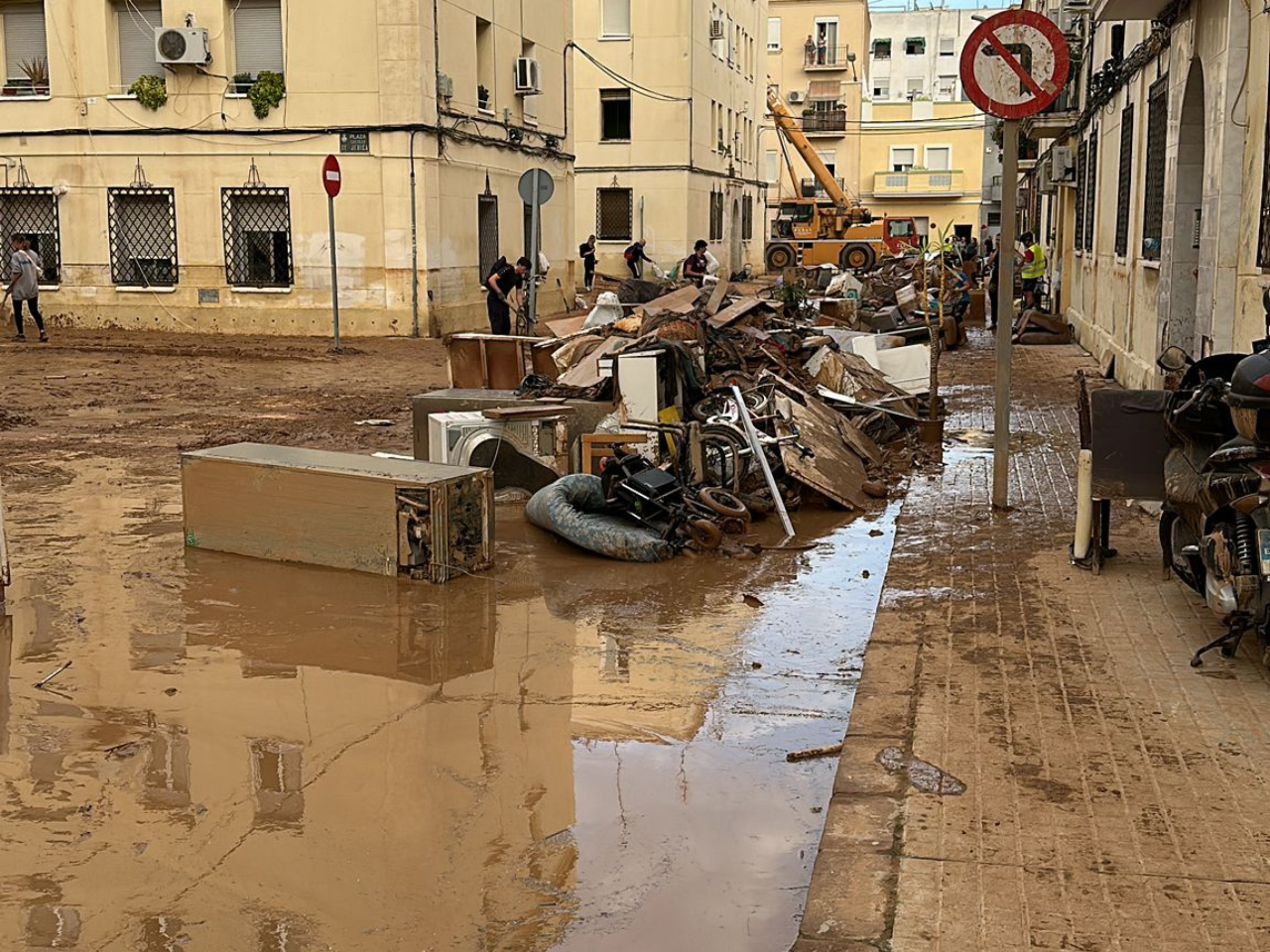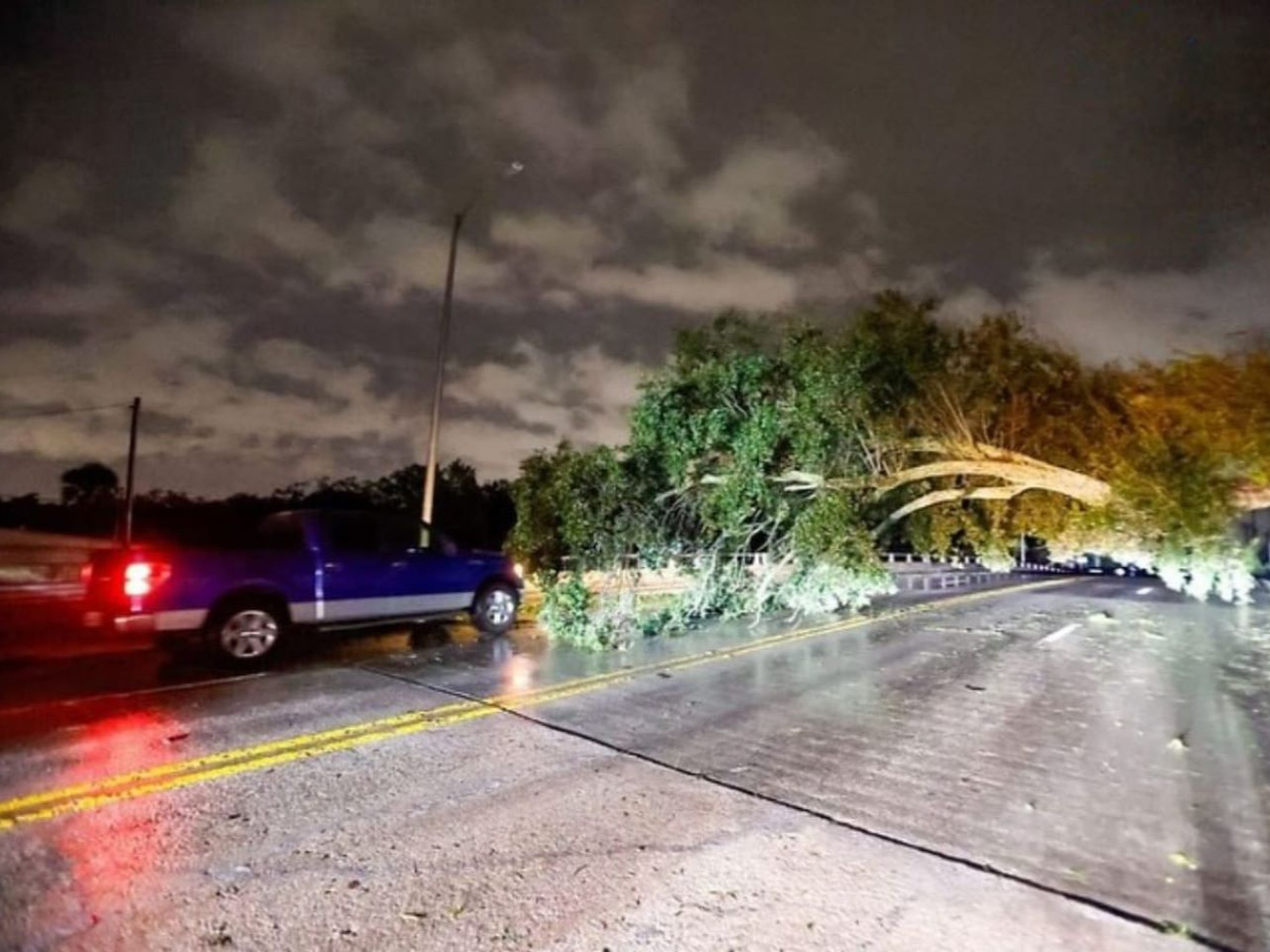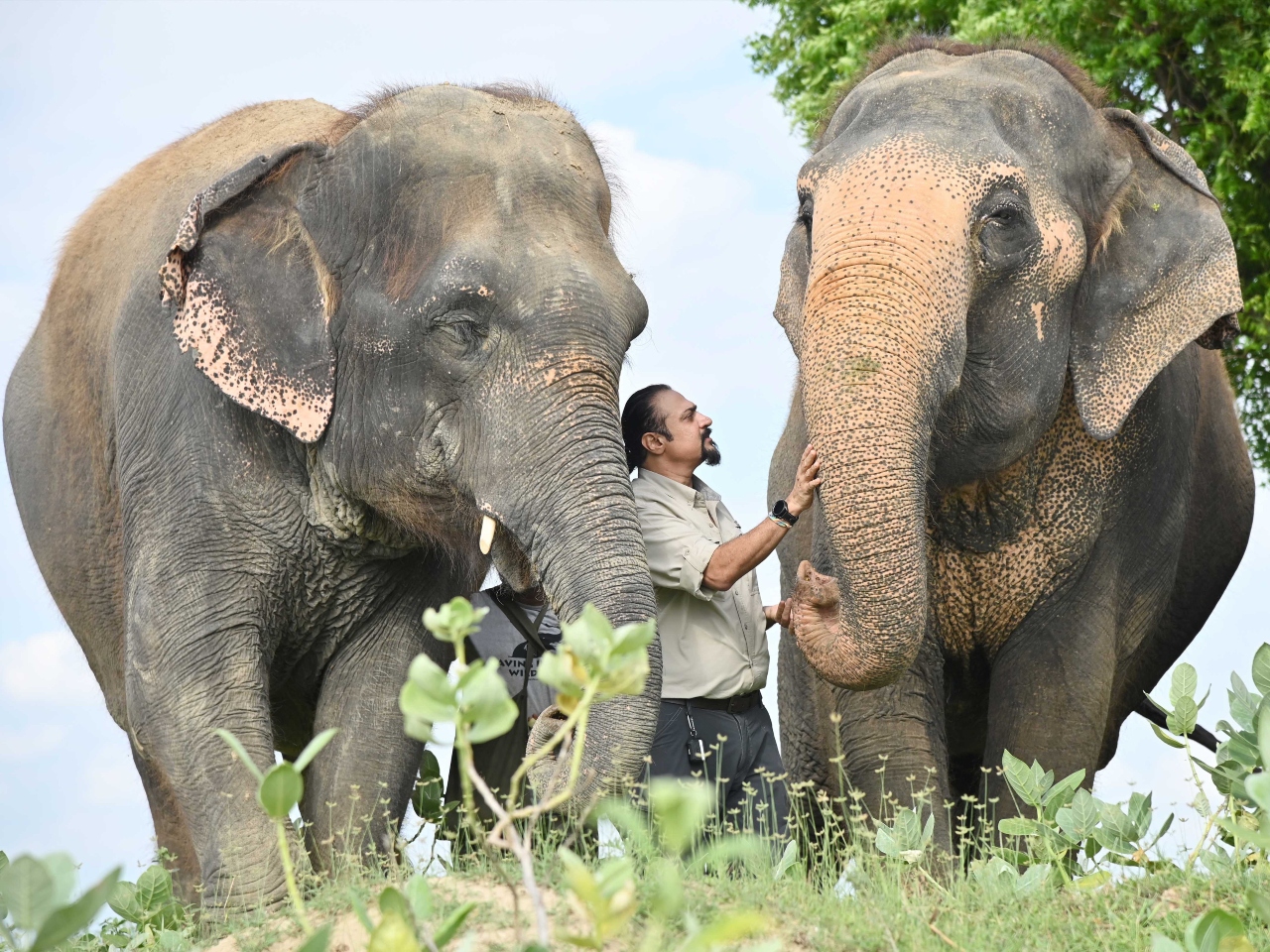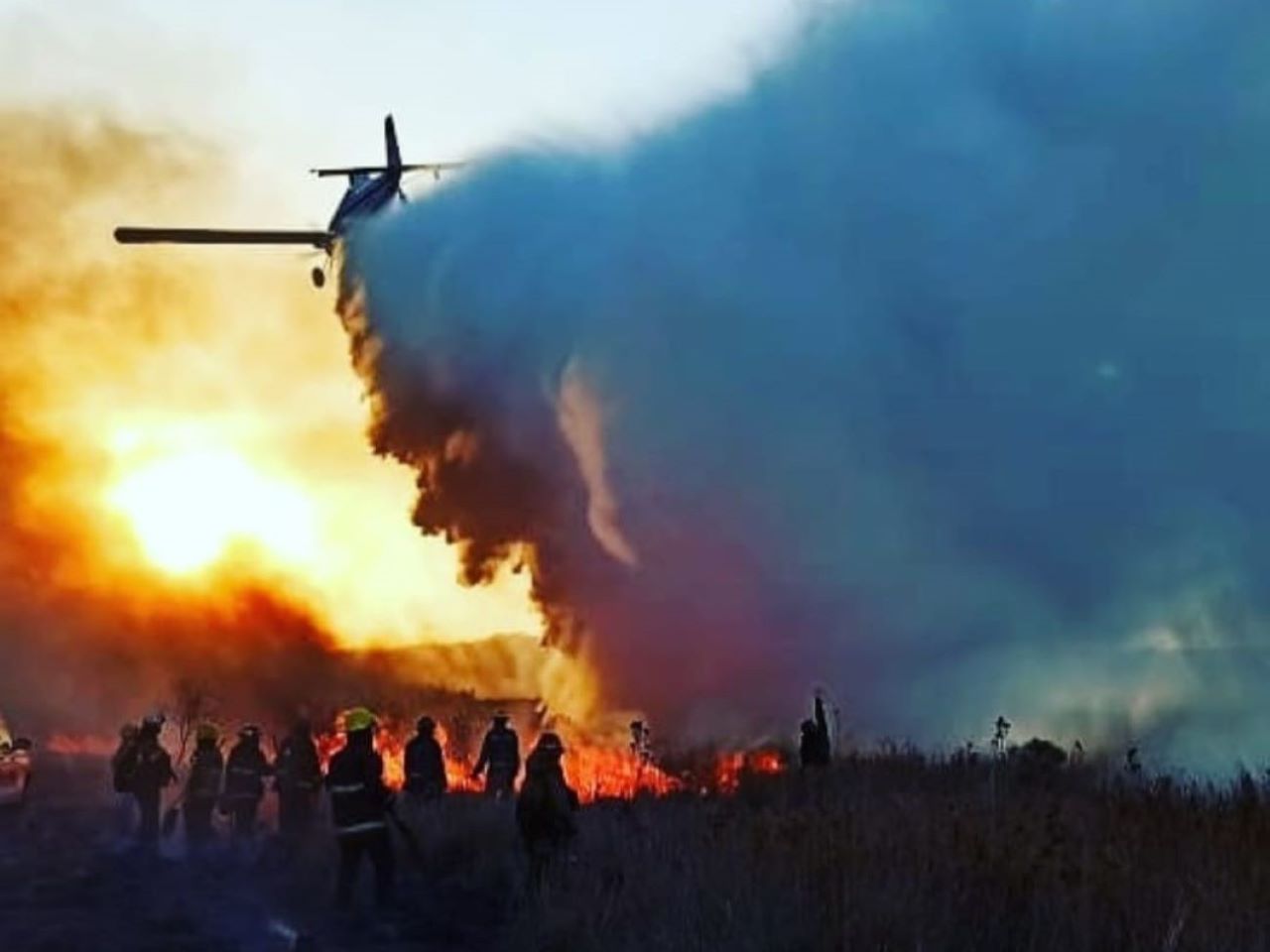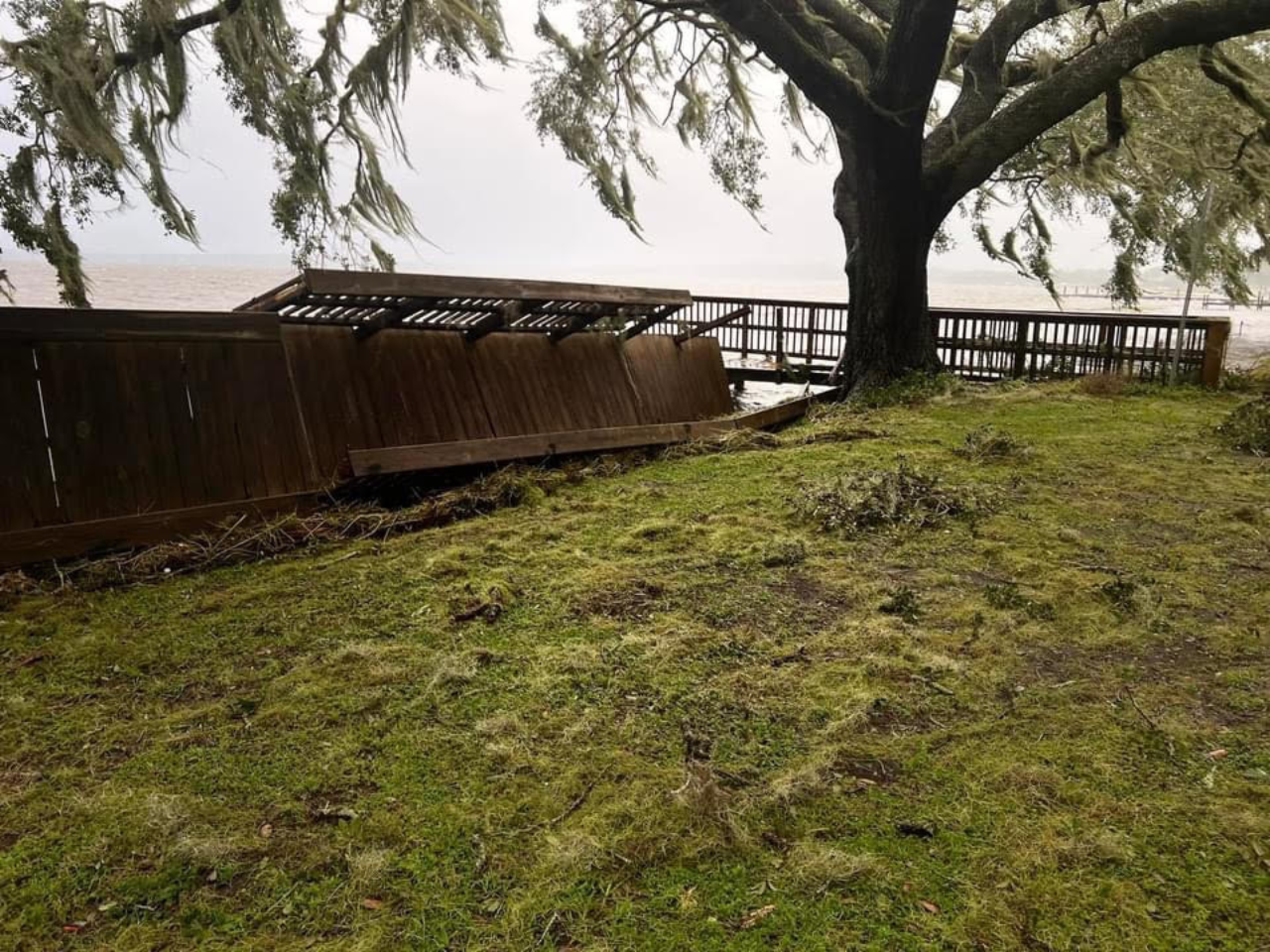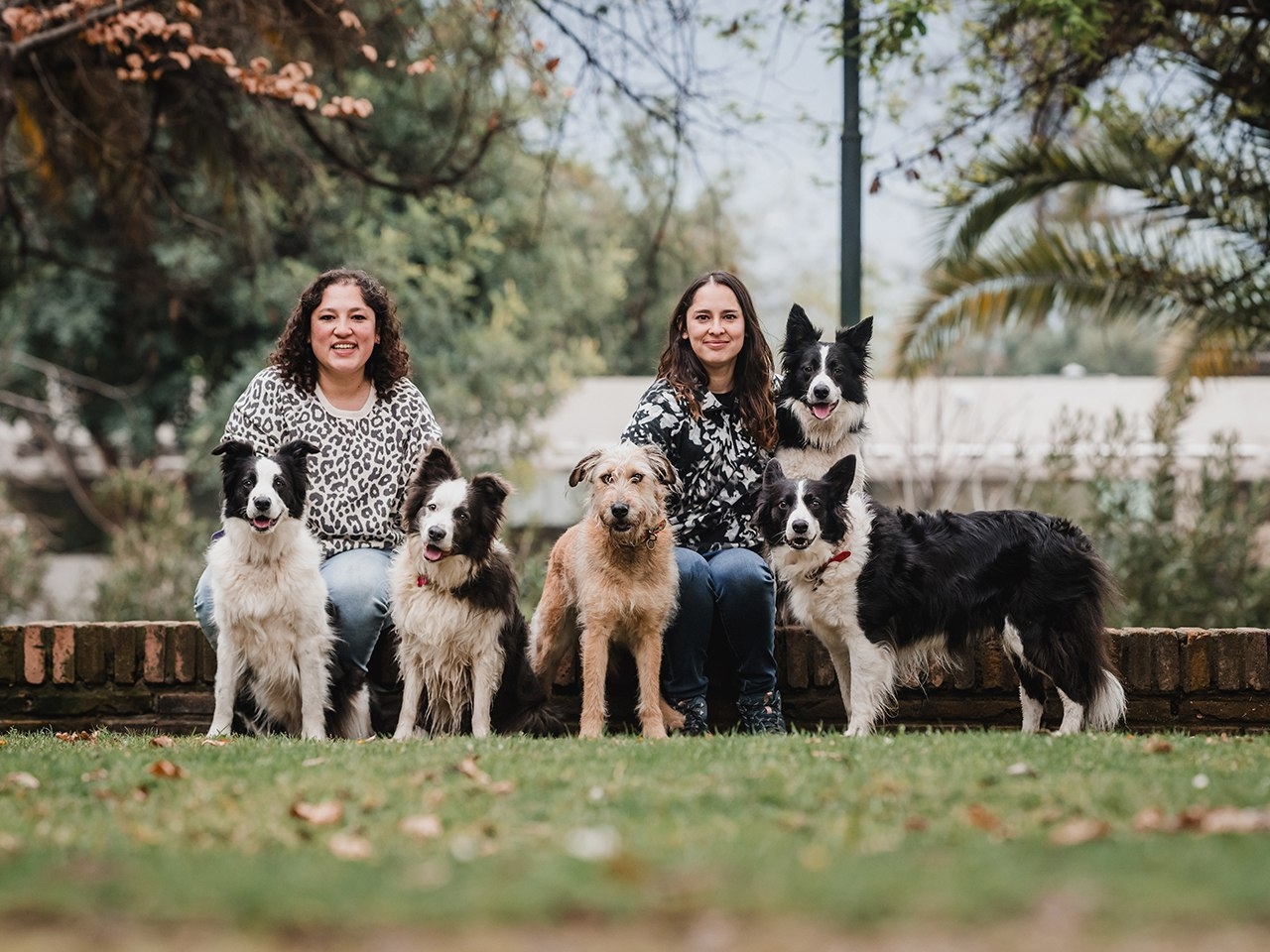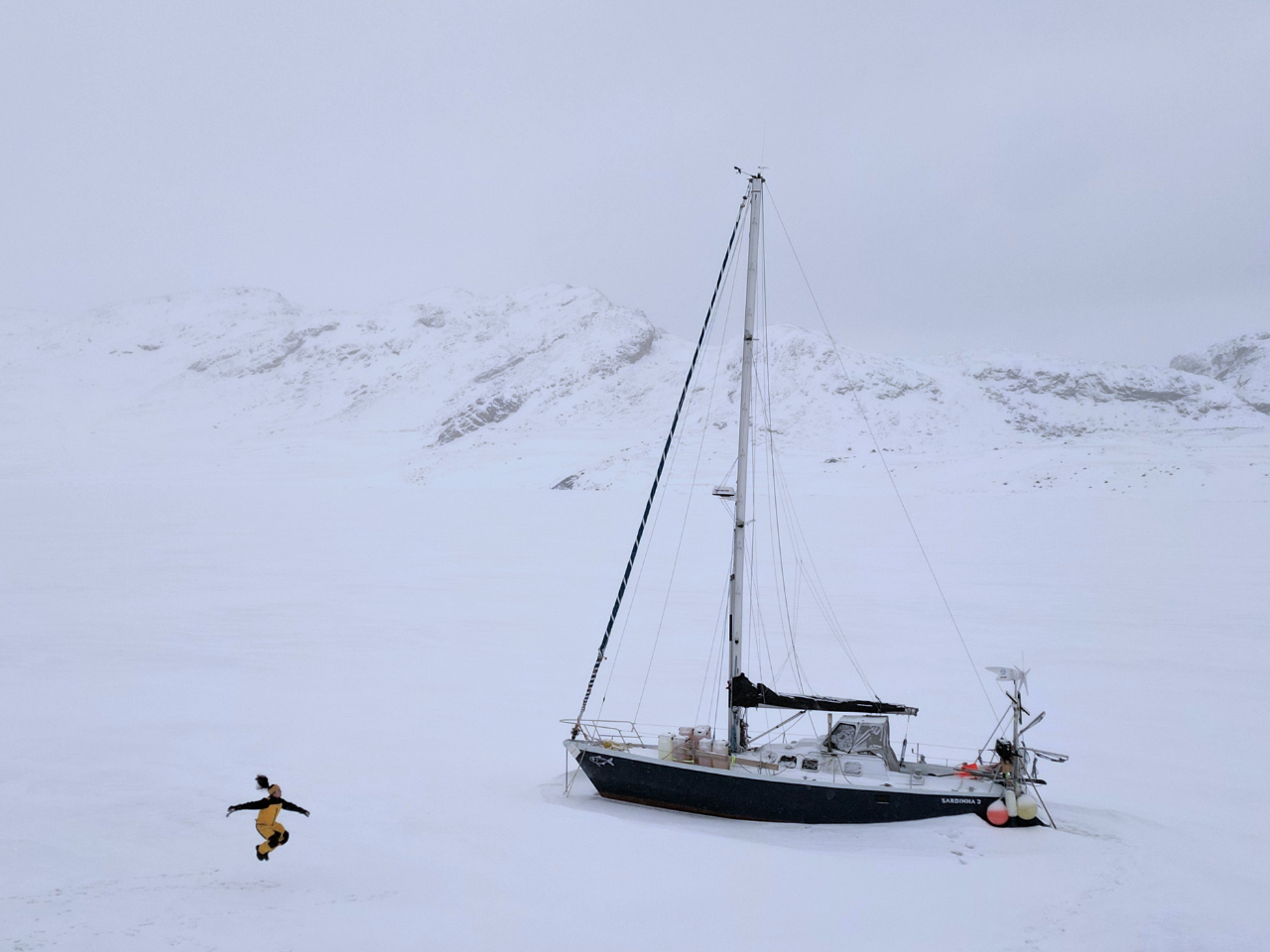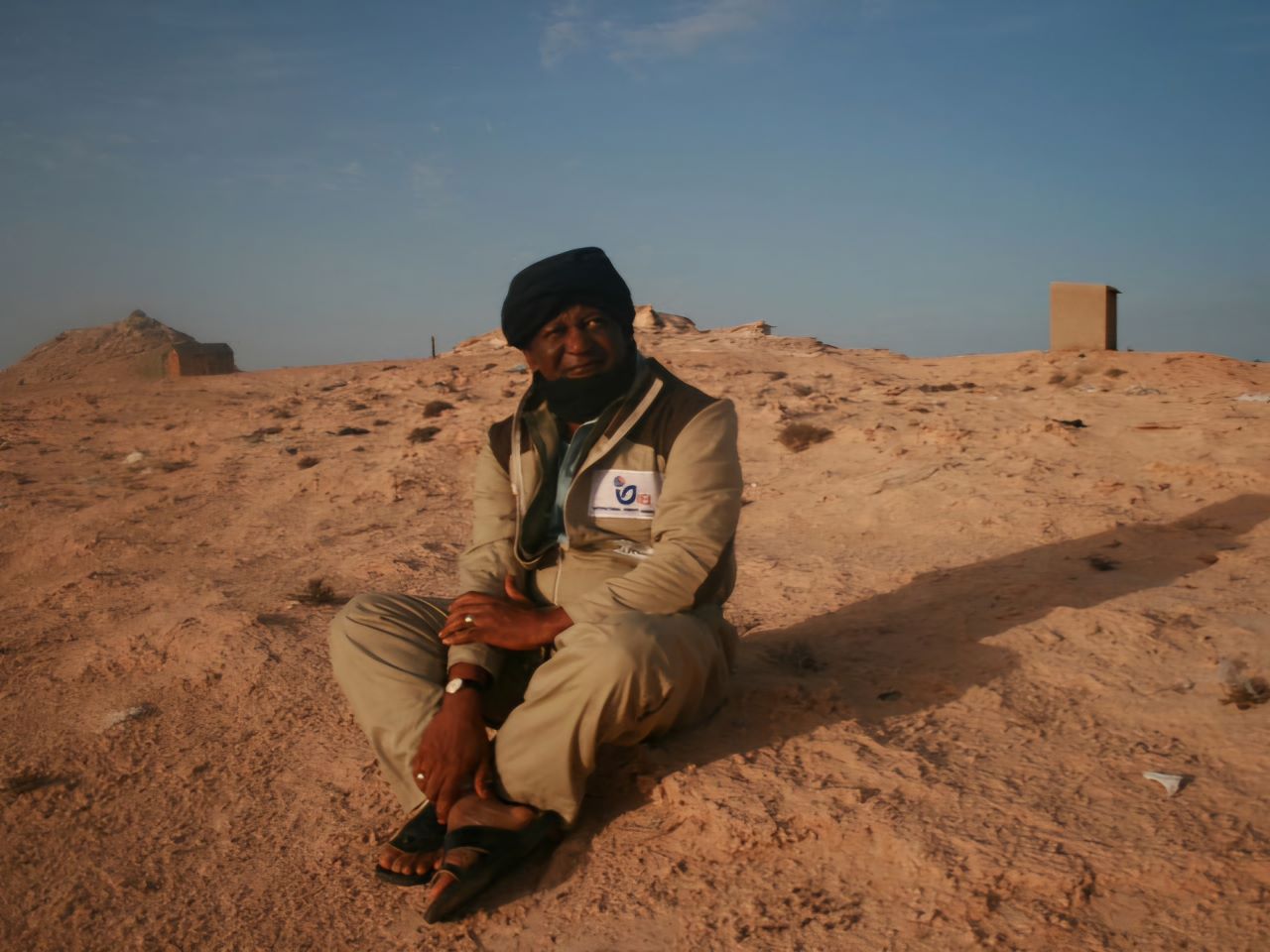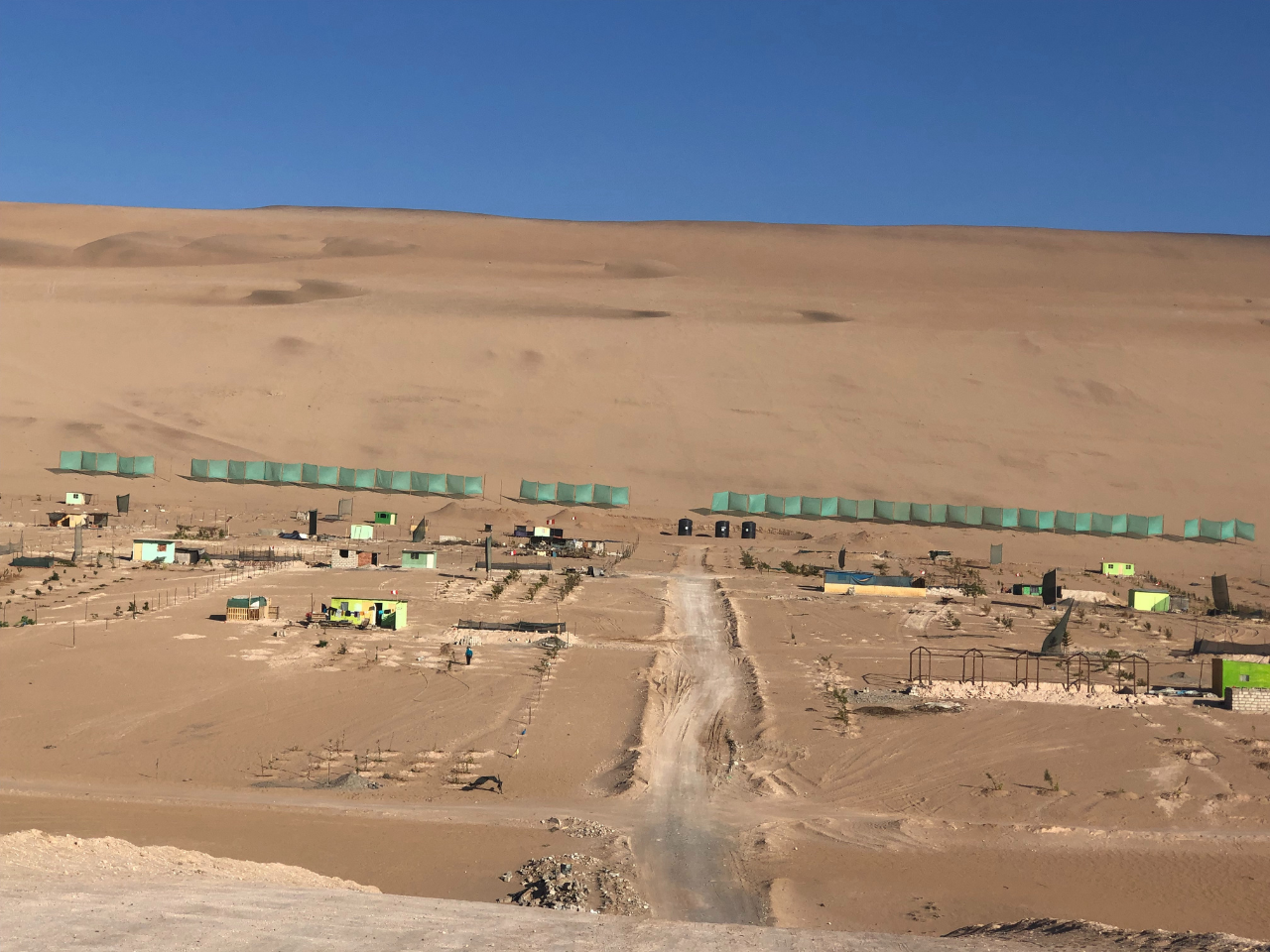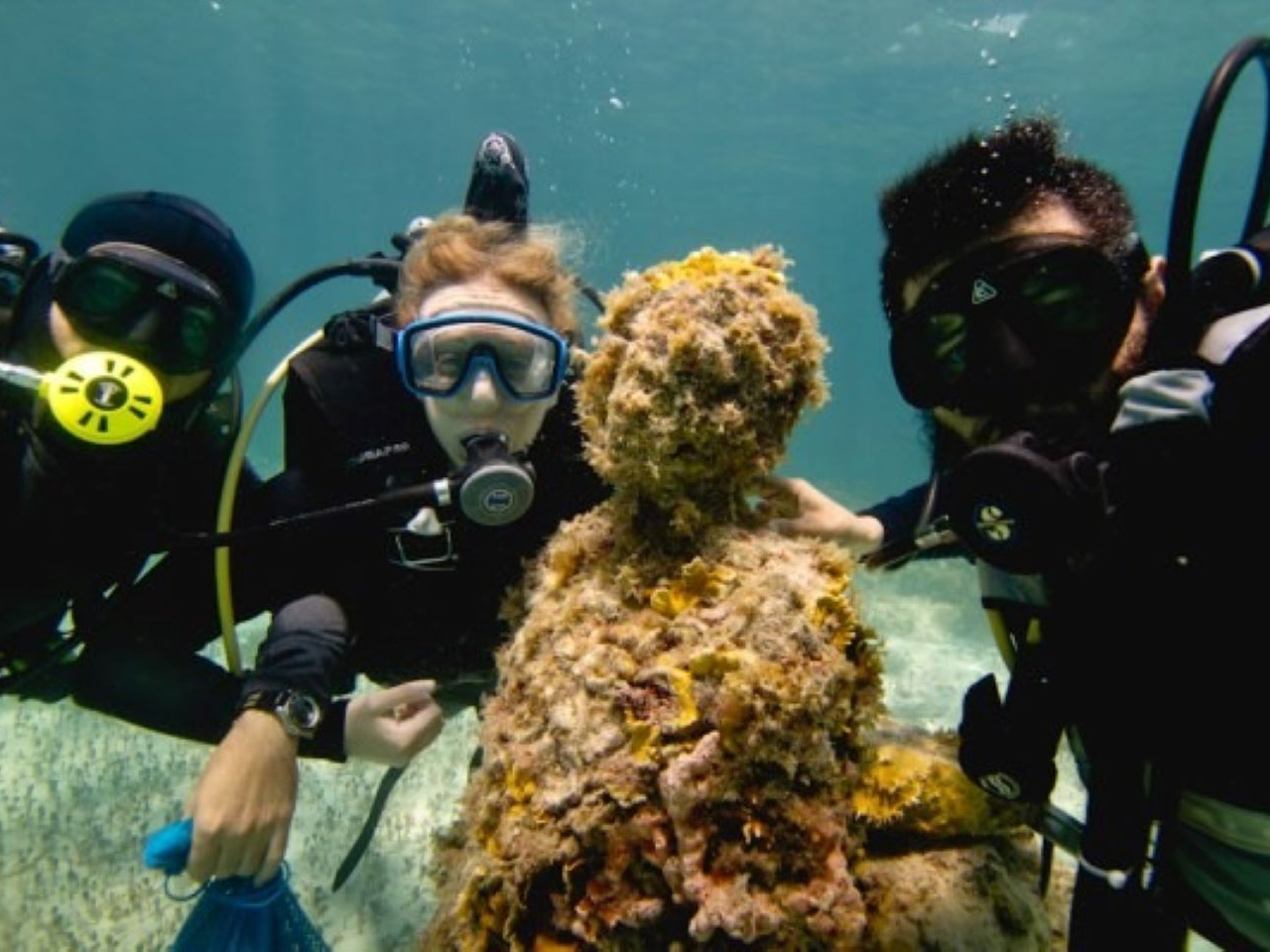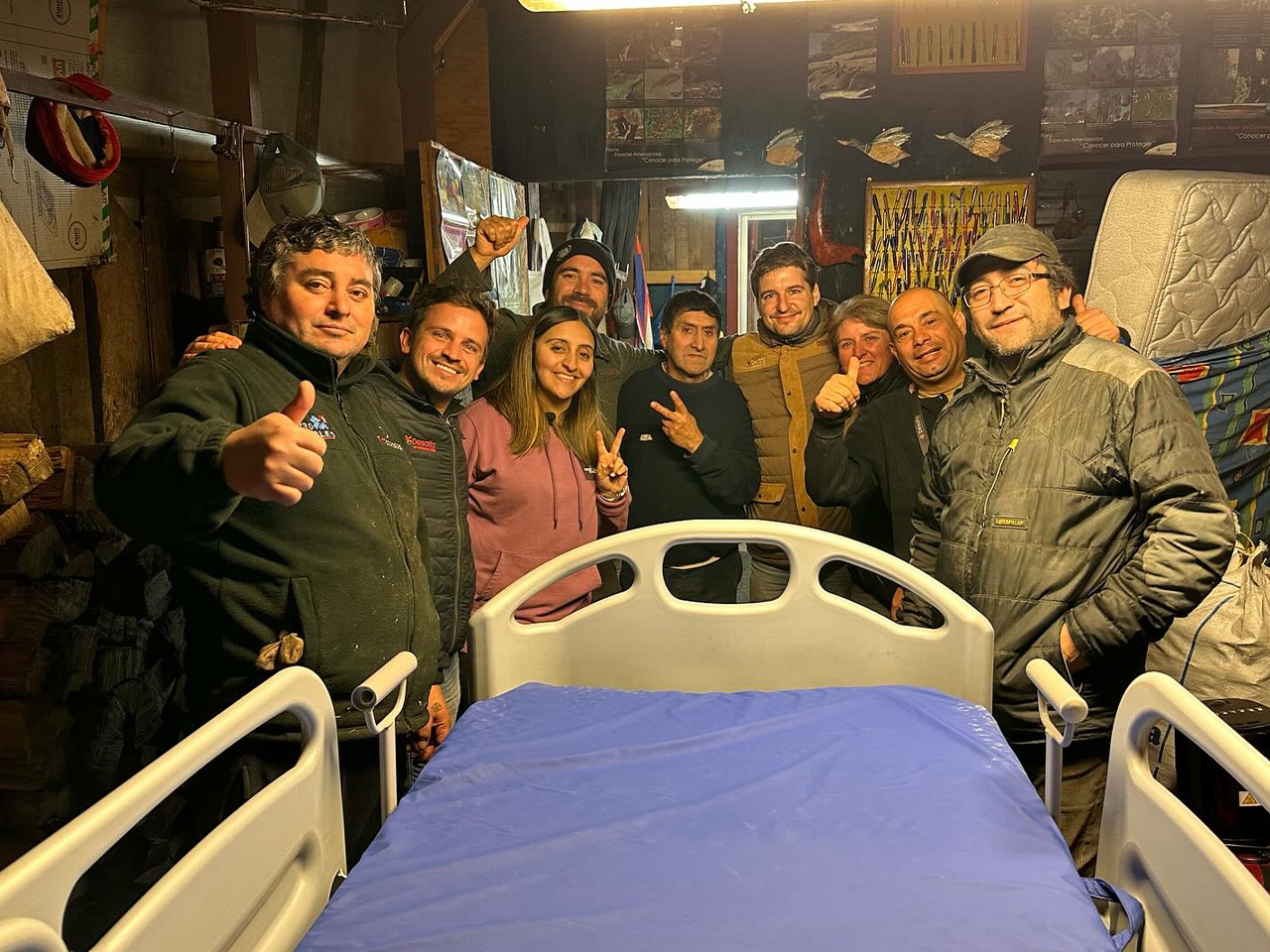Bolivia battles catastrophic wildfires, threatening communities and nature
One night, just as we thought we had secured a fire line, a sudden gust of wind unleashed the flames like an unstoppable wave. The fire broke through our defenses and devoured hectares of forest within minutes. Each lost hectare struck us like a painful defeat, deepening our sense of loss.
- 1 year ago
November 29, 2024
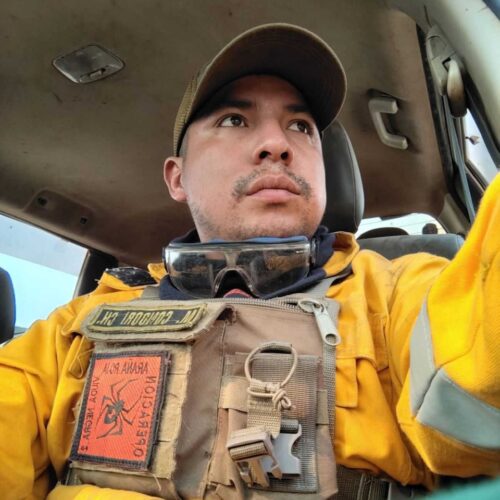
SANTA CRUZ, Bolivia — On June 22, 2024, a wildfire broke out in Palmarito [a locality in Santa Cruz, Bolivia] prompting the community to call us for help. With our limited resources, we relied on a few motorcycles to reach the fire. As we pushed forward, the escalating flames revealed the severity of the threat, turning what seemed manageable into a looming disaster.
As we reached the front line, a desolate landscape greeted us. The devastation sharpened our nerves, strengthening our resolve. Refusing to retreat, we pressed on, determined to extinguish the fire before exhaustion overtook us.
Read more environment stories at Orato World Media.
Firefighters battle to protect Bolivia’s forests from devastating wildfires
On June 22, 2024, the first outbreaks sparked a fierce fire season in Bolivia, one we never expected. Flames surged skyward, towering like a blazing wall and illuminating the night as they consumed the forest in red and orange fury. With only shovels, machetes, and water-filled backpacks, we confronted the relentless inferno, its soot darkening our faces and hands. Persistently, we stood in its path, fighting every moment to protect life from destruction.
Relentlessly, the fire advanced in all directions, overwhelming our defenses. Despite our best efforts, it burned 50 percent of San Matías’s protected area. However, we fought to contain it day and night, pausing only briefly to regain strength. One night, just as we thought we had secured a fire line, a sudden gust of wind unleashed the flames like an unstoppable wave. The fire broke through our defenses and devoured hectares of forest within minutes. Each lost hectare struck us like a painful defeat, deepening our sense of loss.
After short breaks, we returned to the front line, only to watch the fire grow stronger with each attempt. Thick smoke blanketed the sky in the early mornings, while the horizon burned orange, as though the sun refused to rise. The constant sense of vulnerability loomed, yet we refused to surrender. As the forest burned with a vengeance, I watched some coworkers freeze, overwhelmed by the fire’s enormity. Amid the uncertainty, we pressed forward, fully aware that one misstep could mean disaster. After countless hours of grueling effort, we finally pushed the fire back. Watching it fade away, we felt relieved, yet we knew the battle was far from over.
Firefighters confront flames and swarming bees
In Pozones [a village in Santa Cruz], the wind roared, pushing the fire across our line of defense like a raging beast. Flames surrounded us as we relied on a couple of flashlights to cut through the darkness. Disoriented animals darted across our paths, their frantic escape stirring fear and compassion in us. As the orange glow created a haunting backdrop, the scene transformed into a nightmare. Firelight illuminated every shadow, while the silhouetted trees stood like ghostly figures, silently witnessing our battle for survival.
The intense heat seared our skin through our clothes with each breath burning our lungs. Despite the exhaustion and fear, we moved forward, refusing to let the fire prevail. We fought, knowing the forest, the communities, and countless species depended on us. Helplessness pressed heavily on us, but our determination to defend what remained burned brighter than our fear.
Amid the searing heat and choking smoke, bees became an unexpected threat. Driven by drought, the bees frantically sought water, targeting us as their prime source due to our sweat. One grueling day, as we worked to open a containment line, bees swarmed us, clinging to our faces, necks, and hands. We swatted at them while the flames closed in, but the stings numbed as the urgency of the fire took over.
Lost in the jungle, firefighters overcome fear and exhaustion
As we ventured deep into the forest, towering trees surrounded us. The dry leaves on the ground allowed the fire to creep underground, stalking like an unseen predator. Without warning, the ground split open as fire erupted behind us. When night fell, it plunged everything into complete darkness. With our GPS batteries dead and our water gone, we became lost and trapped in a maze of trees and shadows. Soon, the deep, unnerving silence shattered as wild animals roared in the distance. My coworker, voice trembling, swore he heard a tiger nearby as fear began to creep in. Amid the intense fear, every whisper of wind felt like an impending threat.
Restlessly, we searched for any road, but the jungle disoriented us more with every step. The hours dragged on endlessly as if time had frozen, tormenting us. I remember the moment when we thought we would not make it out. As the night enveloped us in absolute darkness, tension seized our bodies. The trees cast giant shadows while the distant roar of animals chilled us to the bone. Exhausted, we could barely summon the strength to crawl another step, clinging to the hope of finding a way out. Uncertainty gripped us as we walked, unsure if we were circling back or heading in the wrong direction.
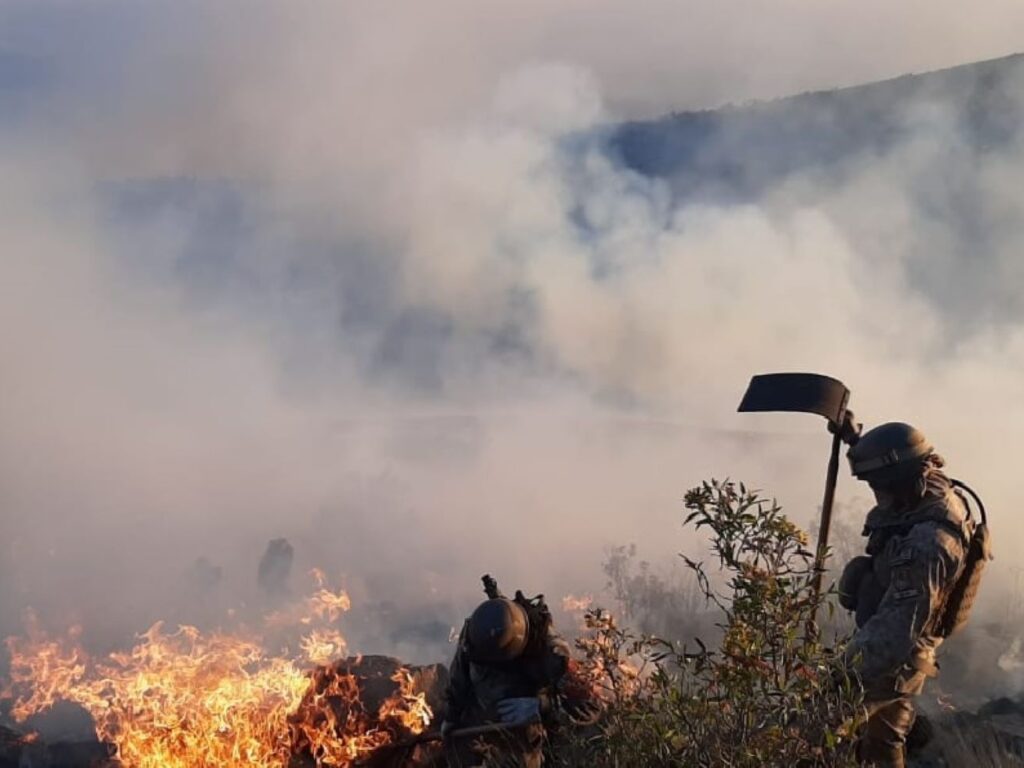
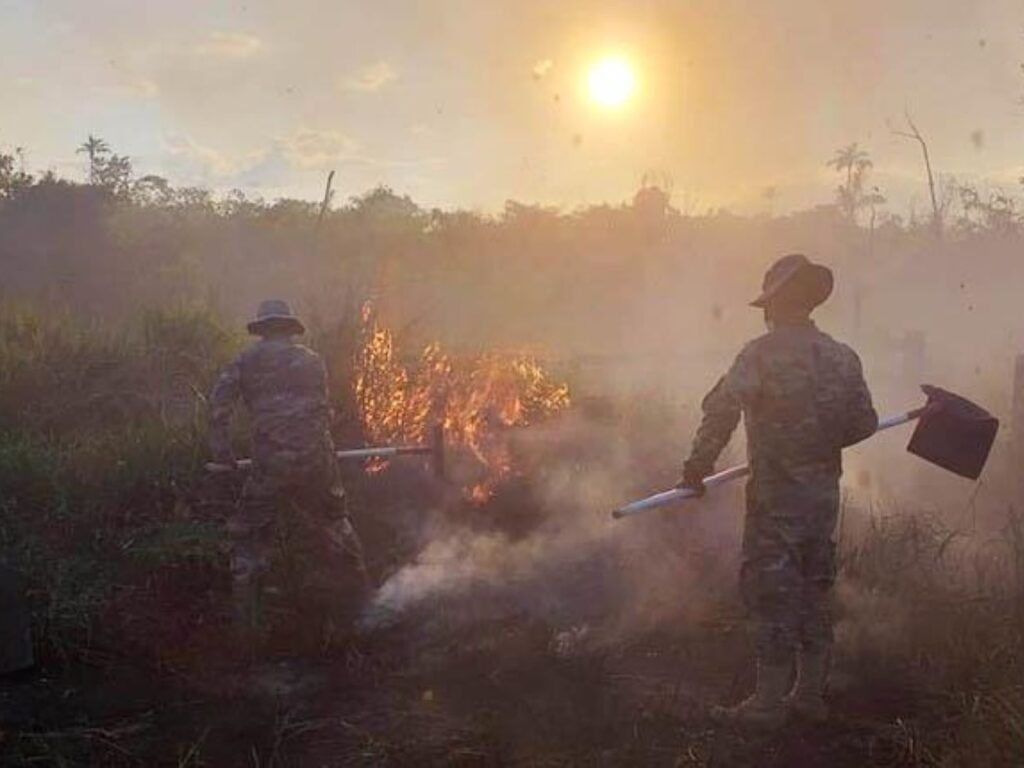
After what felt like an endless walk, we finally spotted a road. It was already 8:00 p.m., and fatigue weighed so heavily on me that my legs could barely support me. However, seeing the road, even from a distance, relieved us. Sweat, hunger, and exhaustion faded into a sense of victory, though all we truly desired was water, food, and rest. We drained ourselves, but we did it together.
Against all odds, our unity and resolve guided us through the darkness. Something greater than ourselves drove us, keeping us moving forward. Looking back, I realized our battle against the fire was not just with the flames, but with the fear of being lost and facing an impossible path. At last, with the dawn, we reached the road safely.
With no backup and poor equipment, firefighters strive to contain flames
Each time we faced the fire, we knew we stood in danger. Our equipment fell short—our water backpacks were old, our machetes barely cut through the dry vegetation, and we had only shovels to create breaches. The state offered no support as we lacked the machinery or heavy equipment to contain the flames effectively. Occasionally, non-governmental organizations provided minimal aid, but it never sufficed. Every day felt like a gamble with life as we pushed forward with only what we had, knowing the fire would never give us a break. Moving on foot, we covered kilometers with just some motorcycles and barely any fuel.
We knew we were alone in this mission as the promised backup would never arrive. Yet, as we watched the forest burn and heard the cries of fleeing animals, we could not afford to stop. The smoke became our constant enemy, almost more relentless than the fire itself. It surrounded and blinded us, making it unbreathable. I remember one day when one of my coworkers started coughing uncontrollably, unable to open his eyes, irritated and tearful. We tried covering ourselves with wet rags, but the smoke still found its way in, filling our lungs with ash. By the end of the day, we all felt the effects of scratchy throats and burning chests.
Sadly, the communities surrounding the affected areas dealt with heat, drought, and smoke invading their homes. Children and the elderly suffered the most, with some coughing non-stop. In despair, community members reported sleepless nights due to eye and throat irritation. During a visit to Santo Corazón [a village in Bolivia], a woman told us the smoke was so thick in the early morning that she sometimes feared the fire reached their roofs. With no choice, they breathed the ash-filled air.
Communities unite to defend homes from wildfires, overcoming limited resources
As the fire approached the communities, we prioritized opening breaches to stop it before it reached the houses. Lacking heavy machinery, we improvised defense lines around the villages using machetes and shovels. One of the most tense moments in Santo Corazón occurred when the fire came within a kilometer, and the wind suddenly changed direction. We spent sleepless nights, alternating shifts to prevent the flames from crossing the containment lines we created by hand.
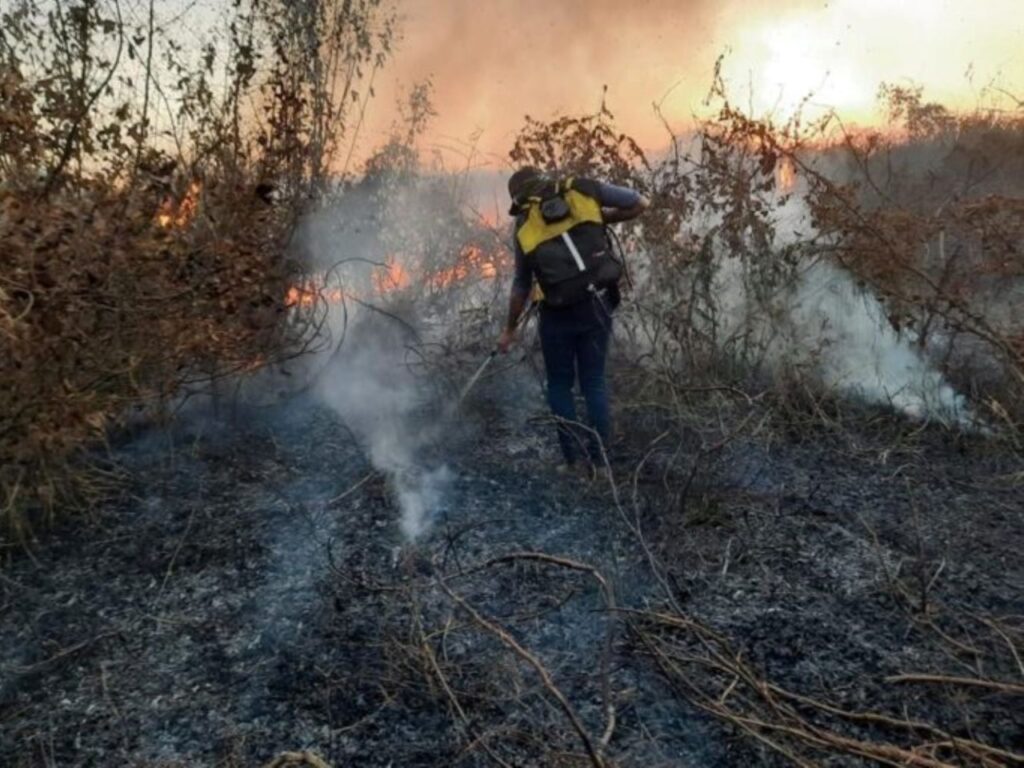
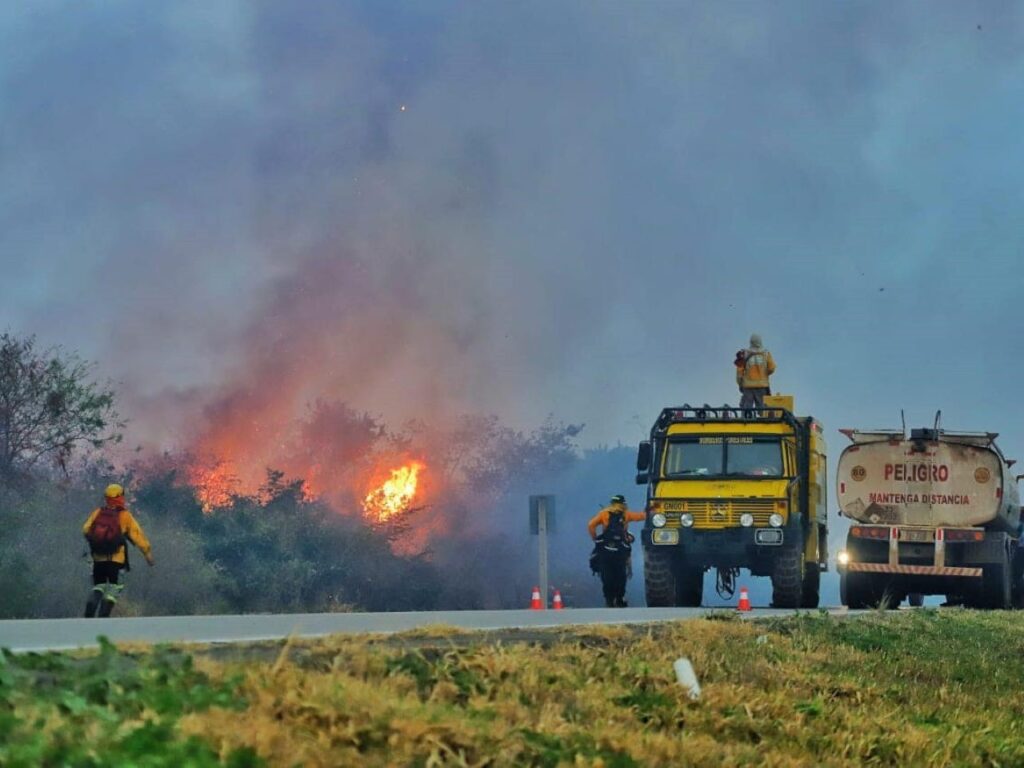
Witnessing our struggle to combat flames, the communities joined us. To prevent fires from reaching their homes, we collaborated with the community to teach them how to create protective barriers around their houses. I remember young and old alike, grabbing shovels, removing bushes, and clearing the ground around their homes while the smoke and heat suffocated us all. Sometimes the wind shifted and blew us back, but we never let our guard down.
Despite their limited resources, the people welcomed us warmly, sharing their scarce water and food. I vividly remember a family who, grateful for our efforts to protect them, offered us their meager provisions. Although we barely had enough food, their smiles and profound gratitude temporarily lifted our fatigue. They provided us with some rice, corn tortillas, and stored water. As we sat together, I noticed the children, despite their tired eyes, looked at us with admiration. Their mother, almost in tears, expressed her gratitude for our efforts. This gesture carried more power than any equipment or external aid we received.
Although we advised families to remain away from the fire zones due to our lack of equipment, they often chose to accompany us. Their support and courage inspired us to keep going. Every time we passed through a village, the people greeted us, offering what little they had, even though these supplies were crucial for their survival. Ultimately, these brave individuals reminded us of our purpose, renewing our determination.
Fire destroys sacred forest, leaving only ashes behind
After we extinguished the flames, returning to those places broke my heart. I saw the devastation we left behind—trees, birds, and everything we vowed to protect, reduced to ashes. The silence that followed the firestorm pierced my soul. Helplessness and rage surged within me, overwhelming me in the face of a relentless enemy. Throughout our efforts, we could only fight to preserve whatever we could.
One particularly heartbreaking moment stayed etched in my memory. I always considered a certain place sacred: a forest full of majestic palm trees where life flourished in every corner. I loved visiting it to watch brightly colored parrots fill the sky with their songs and to feel the peace only old, sturdy trees could convey. As we passed through the forest, I told the boys, “This forest is untouchable; nothing should happen to it.” However, the fire ignored our promises and destroyed that vow within days.
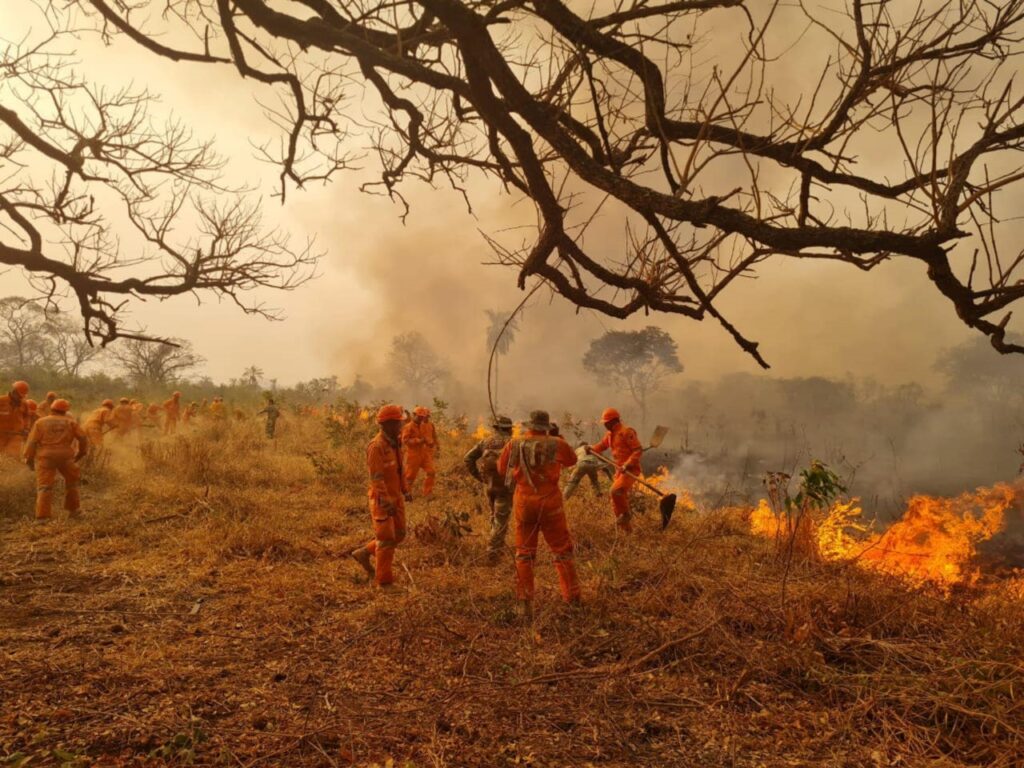
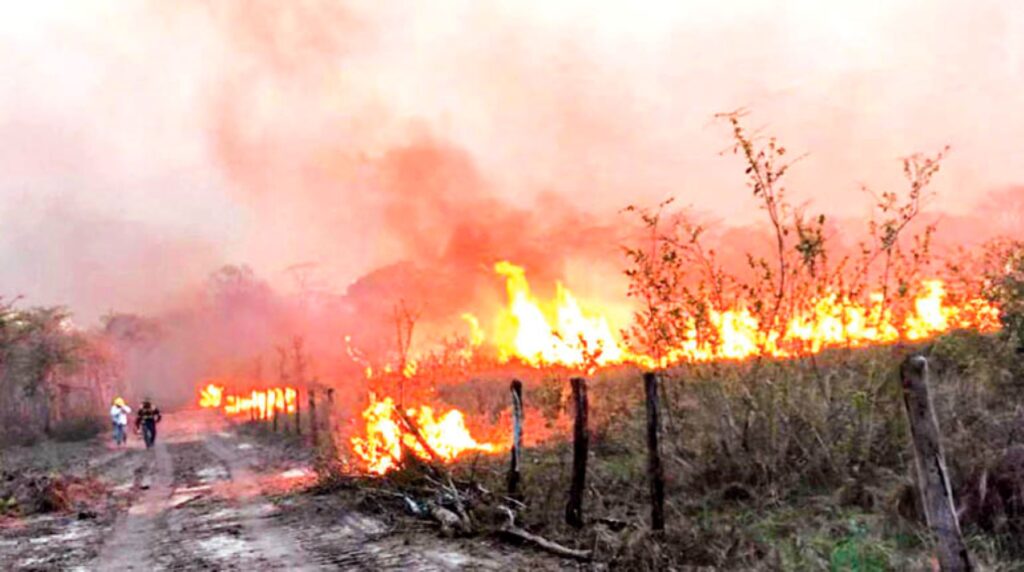
When we returned a few days later, the fire turned the forest into a graveyard. The fire devoured the beauty, leaving the palm trees that once stood proud as charred shadows. Branches crunched under our feet, and the ground, once covered in green, was stained with ashes. I searched for the parrots, the ones I loved to see flying free, but I found only some of their burnt remains on the ground. The fire seemed to erase all life, leaving us with a tomb-like silence and a desolate landscape. I knew the damage was irreparable as the forest and its life could never return to what they were. As I stood silent, an immense emptiness consumed me.
Rains mark a new beginning after the fires
After months of hard work and sacrifice, we were relieved when the rains arrived. Nature began to green again, and although the damage remained irreversible in many areas, the first green shoots reminded us of our purpose. As I look over the horizon, I know our battle to protect San Matías continues. These fires taught me about nature’s power and our fragility. Undoubtedly, the fire united us in pain and hope, driving us to fight repeatedly to preserve what remains.
We waited so long for this moment. As the raindrops fell on our skin, emotion flooded us, blending with deep pain. My coworkers and I stood in silence, expressing our gratitude for the scene before us. We knew the native forests, with their unique life, would never be the same. Some ancestral trees vanished forever, and several species that once inhabited the area might never return. Yet, even though we accepted the harsh realities, those raindrops reminded us of our reason for fighting.
The rains brought relief but also stirred nostalgia. The sound of the drops on the scorched leaves echoed our loss. I saw the scars the fire left, realizing healing this wound would take time. As the water ran down my face, I promised myself I would protect this place with every fiber of my being. At that moment, something sacred stirred within me. I realized the earth began to be reborn, and as its witnesses, we, too, were reborn. With unwavering commitment and newfound strength, we pledged to care for what remained.

